東工大ニュース
東工大ニュース
「Tokyo Tech Bulletin(トーキョー テック ブリテン)」は、東京工業大学の研究成果やニュース記事、学生の活動などを紹介し国内外へ広く配信する英文メールニュースです。この度、Tokyo Tech Bulletin No. 72 が発行されました。
メールでの配信をご希望の方は申込フォームからご登録ください。

January 1, 2024 marks my sixth and final New Year's celebration as the president of Tokyo Tech. Soon after I assumed my position in April 2018, I proposed to the community the Tokyo Tech Commitments, which I believed would guide us to a brighter future. The students, faculty, and staff of the Institute seemed to welcome these commitments ― appreciating diversity, embracing collaborative challenges, and taking decisive action ― in many of their activities and, despite the various hurdles that were thrust before them, continued to create and innovate together with the broader community.
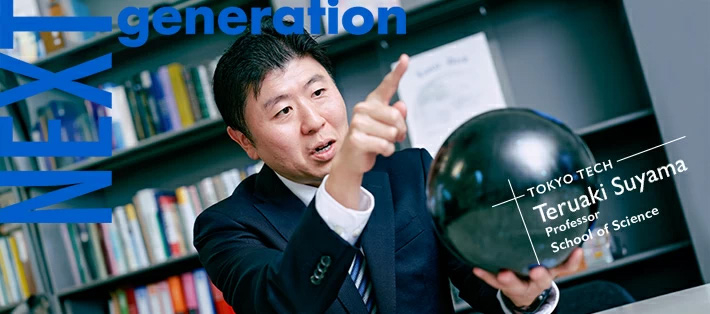
On September 14, 2015, the American gravitational-wave observatory LIGO observed gravitational waves for the first time in history. Professor Teruaki Suyama of the Department of Physics, School of Science, specializes in "modern cosmology," and is conducting theoretical research based on gravitational waves to unravel the fundamental mysteries of the universe, such as the nature of black holes that formed in the early universe and of dark matter, which is believed to make up the majority of the universe.

Today the Diet passed an act to partially amend the National University Corporation Act, including the establishment of National University Corporation Institute of Science Tokyo, by integrating National University Corporation Tokyo Institute of Technology and National University Corporation Tokyo Medical and Dental University.
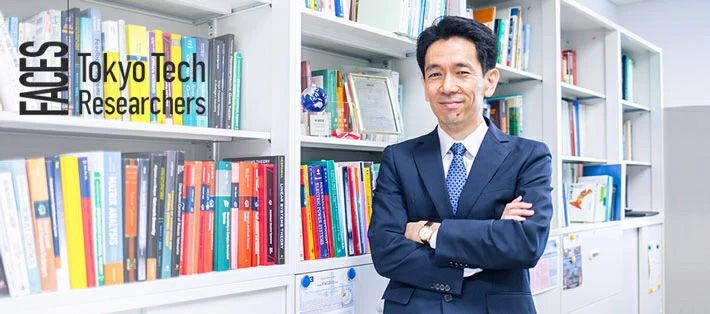
With the advance of technologies such as autonomous driving and smart grids, increasing importance is being placed on cyber-physical systems that use information and communication technology (ICT) in cyberspace to optimally control devices in physical space. Amidst these developments, Professor Hideaki Ishii (Department of Computer Science, School of Computing) is leading the field in research on control theory related to cyber-physical systems.

Taking on next-generation health care based on his experience as a student entrepreneur, researcher, and exchange student.
Based on the belief that craftsmanship can save people, Dr. Yoshinori Mizuguchi, who conducted research at Tokyo Tech and is currently the CFO of Metagen, is at the forefront of gut environment research at the company. He looked back on his seven years of intense research, as well as the dual challenge of starting his own business while he was a student. He also talked about the invaluable experiences that have made him who he is today.

Pentoses are essential carbohydrates in the metabolism of modern lifeforms, but their availability during early Earth is unclear since these molecules are unstable. A new study led by the Earth-Life Science Institute (ELSI) at Tokyo Tech, reveals a chemical pathway compatible with early Earth conditions and by which C6 aldonates could have acted as a source of pentoses without the need for enzymes. Their findings provide clues about primitive biochemistry and bring us closer to understanding the Origins of Life.

The detailed physics behind droplet generation in microfluidic post-array devices has been clarified by scientists at Tokyo Tech. Through various experiments performed under different operational conditions, they gained important insights into how these small devices can be used to produce uniform emulsions, with potential applications in analytical chemistry and biology, medicine, cosmetics, and materials science.
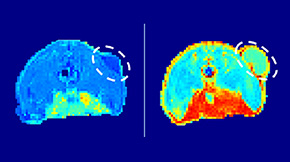
Self-folding polymers containing gadolinium forming nanosized complexes could be the key to enhanced magnetic resonance imaging and next-generation drug delivery, as demonstrated by scientists at Tokyo Tech. Thanks to their small size, low toxicity, and good tumor accumulation and penetration, these complexes represent a leap forward in contrast agents for cancer diagnosis, as well as neutron capture radiotherapy.
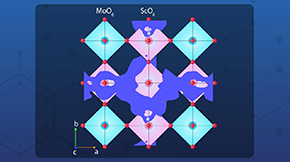
Donor doping into a mother material with disordered intrinsic oxygen vacancies, instead of the widely used strategy of acceptor doping into a material without oxygen vacancies, can greatly enhance the conductivity and stability of perovskite-type proton conductors at intermediate and low temperatures of 250―400 °C, as demonstrated by Tokyo Tech scientists (e.g. 10 mS/cm at 320 °C). This innovative approach provides a new design direction for proton conductors for fuel cells and electrolysis cells.

The observed variations in chromium (Cr) isotope ratios in the Ryugu asteroid samples collected by Hayabusa2 likely resulted from elemental redistribution of slightly soluble Cr by water within the parent body, reveals a multinational study led by researchers from Tokyo Tech. The results provide useful insights for expanding our understanding of the origin and evolution of materials in our solar system.
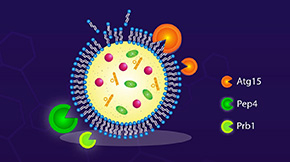
Our understanding of how cells recycle lipids through autophagy―a form of cellular degradation―has grown significantly, thanks to a recent study by scientists at Tokyo Tech. Using yeast as a model organism, the researchers explored the molecular mechanisms leading to the degradation of the phospholipid bilayers making up the cell membranes. Their findings improve our understanding of cellular degradation processes and related metabolic disorders.
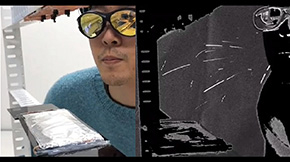
A novel device developed by Tokyo Tech researchers in a new study utilizes ions and an electric field to effectively capture infectious droplets and aerosols, while letting light and sound pass through to allow communication. The innovation is significant in the wake of the COVID-19 pandemic, since it shows promise in preventing airborne infection while facilitating communication.
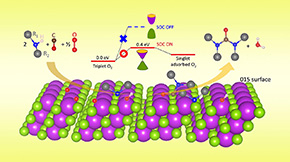
The unique quantum properties of bismuth selenide make it a promising catalyst for the synthesis of organic ureas, as demonstrated by scientists at Tokyo Tech. Thanks to its topological surface states, the proposed catalyst exhibits remarkably high catalytic activity and durability when used for the synthesis of various urea derivatives, which are widely utilized as nitrogen fertilizers.
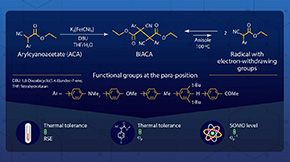
The thermal tolerance of radical-type mechanophores (RMs) that undergo dissociation of the central C–C bond upon mechanical impact increases with the electron-withdrawing ability of the functional group at the para position of the radical skeleton, demonstrate researchers from Tokyo Tech and Sagami Chemical Research Institute. Their study provides a rational design guide for preparing RMs with high thermal tolerance and mechanical responsiveness.
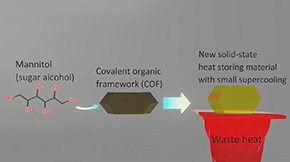
A solution to enhance the thermal energy storage of sugar alcohols has been developed by researchers from Tokyo Tech. They achieved this by confining sugar alcohols, commonly used sweeteners, in the pores of a covalent organic framework (COF), effectively resolving the long-standing problem of supercooling that degrades the stored thermal energy. This innovative material can store-and-release heat much more efficiently, potentially opening doors to novel, eco-friendly solid-state heat storage materials.

An upconversion organic light-emitting diode (OLED) based on a typical blue-fluorescence emitter achieves emission at an ultralow turn-on voltage of 1.47 V, as demonstrated by researchers from Tokyo Tech. Their technology circumvents the traditional high voltage requirement for blue OLEDs, leading to potential advancements in commercial smartphone and large screen displays.
Tokyo Tech Bulletinは英語で配信を行っていますが、コンテンツは一部を除いてすべて日英両方で掲載しています。